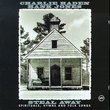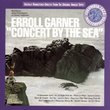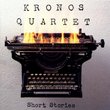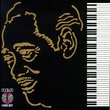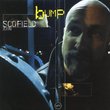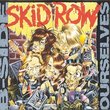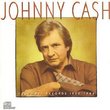| All Artists: Herbie Hancock Title: Mwandishi: The Complete Warner Bros. Recordings Members Wishing: 4 Total Copies: 0 Label: Warner Bros / Wea Original Release Date: 11/22/1994 Release Date: 11/22/1994 Genres: Jazz, Pop, R&B Styles: Jazz Fusion, Modern Postbebop, Bebop, Funk Number of Discs: 2 SwapaCD Credits: 2 UPC: 093624573227 |
Search - Herbie Hancock :: Mwandishi: The Complete Warner Bros. Recordings
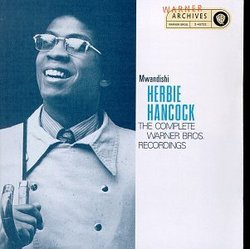 | Herbie Hancock Mwandishi: The Complete Warner Bros. Recordings Genres: Jazz, Pop, R&B
These two CDs include three LPs from 1969 to 1972, one of Herbie Hancock's most creative periods. The earliest album, Fat Albert Rotunda, features a fine sextet highlighted by tenor saxophonist Joe Henderson, like Hancock ... more » |
Larger Image |
CD DetailsSynopsis
Amazon.com essential recording These two CDs include three LPs from 1969 to 1972, one of Herbie Hancock's most creative periods. The earliest album, Fat Albert Rotunda, features a fine sextet highlighted by tenor saxophonist Joe Henderson, like Hancock a master at maintaining strong rhythmic grooves while stretching outward. The later music, with a regularly working band, becomes increasingly expansive and exploratory. Like Miles Davis on Bitches Brew, Hancock was increasingly interested in layering rhythms and textures, emphasizing percussion, electric keyboards, and potent soloists, and broadening his palette of sounds to eventually include synthesizers. There are significant contributions from the inspiring drummer Billy Hart and some potent, if neglected, soloists in multireed player Bennie Maupin (also on Bitches Brew) and trombonist Julian Priester (a Sun Ra associate), who also provided the extended compositions "Water Torture" and "Wandering Spirit Song," respectively. This is a sometimes overlooked period in Hancock's music, bracketed by the quality of his earlier acoustic music, both with Davis and as a leader on Blue Note, and his later commercial success, but it's some of his most innovative work. --Stuart Broomer Similarly Requested CDs
|
CD ReviewsA tale of two discs: one good; the other, not Scott McFarland | 07/17/1999 (3 out of 5 stars) "(Disc One, 4 stars; Disc Two, 2 stars)Warner Bros. re-release of the three records Herbie Hancock recorded for the label returns to the catalog a critical juncture of the "journey" this legendary pianist took from one classic, "Maiden Voyage" in 1965 to another, "Head Hunters" of 1973. Disc One contains all of "The Fat Albert Rotunda", recorded just after Hancock left Miles Davis' band in 1969. In it, he employs a sextet lineup, first employed a year earlier in "Speak Like a Child", but with a more contemporary sound. The record sounds sort of like The Crusaders, circa 1972, except that the compositions and mucisianship is a notch higher. About 20 seconds into the opening tune "Wiggle-Waggle" puts the listener on notice that Herbie intends to groove. "Tell Me a Bedtime Story" is a classic Hancock ballad he cut from the same cloth which with he wrote "Dolphin Dance" four years earlier. Joe Henderson's distinctive tenor sax can't be missed, even in a larger band. The woefully underappreciated Eric Gale makes "Lil Brother" sizzle with his distinctive, cutting funky guitar playing. The first disc closes out with two tunes from the follow-up record "Mwandishi" (1971) and the introduction of David Rubinson as producer is evident, as the overall sound has a nice, glossy sheen to it. While Hancock retains three horns here, there are few horn arrangements; for the most part, each player takes turns on providing solos or just providing splashes of color to the overall sound. The songs are less structured, relying mainly on improvisions around recurring themes. In the songs "Ostinato" and "You'll Know...", this formula works. Hancock does some fine Fender Rhodes playing on these songs, and Benny Maupin's bass clarinet proves to be a key addition to the band, giving it a unique, haunting feel.On the second disc, however, the same formula degenerates into some rather pointless noodling, not too unlike Miles in his post-Jack Johnson period. The emphasis on textures and sound effects is done so at the expense of focused playing. This this is especially true in "Crossings" (1972), where a synthesizer is introduced, but adds nothing to the music. It is interesting, however, that the bass clarinet/bass theme on the closing "Water Torture" seems to anticipate the beautiful "Vein Melter" on the Head Hunters record the following year. All to show that you can always find linearity Hancock's expansive work." Fascinating with spectacular moments Michael Hardin | South Duxbury, Vermont United States | 03/04/2006 (4 out of 5 stars) "These two CDs document Herbie Hancock's music from 1969-1971 for the Warner Brothers label, released originally as three albums. It is a testament to how much jazz was changing at the time that the first album and the last are so drastically different, though the middle album helps to bridge the gap. The first album, "Fat Albert Rotunda," was music that Hancock wrote for "Fat Albert," the Bill Cosby cartoon. For the most part, the music is very funky, but more in the Lee Morgan boogaloo sense than in the Headhunters of the 70s sense. At this point, so much energy had been used trying to find the next hit boogaloo to succeed "The Sidewinder" that the subgenre had been exhausted. Thus, many of the tunes on this album sound very very similar (and one cut actually steals the Horace Silver groove from "The Jody Grind" three years earlier). That having been said, for what it is, the level of musicianship is very high, as Hancock was truly the inventor of this type of tune. The highlights of "Fat Albert Rotunda" are actually the non-funk tunes, few as they are. "Tell me a Bedtime Story" is absolutely beautiful, though it does sound dated mainly because of the groove (the drum pattern used sounds eerily like disco music even though this was almost a decade before the disco craze). "Jessica" is another really pretty ballad, though the orchestrations are a little thick at some times (the melody is beautiful enough to stand alone in my opinion). The truly wonderful music on this CD comes from the second and third albums represented here, "Mwandishi" and "Crossings." The former features exploratory (though still listenable) extended pieces with an emphasis on odd rhythmic patterns and grooves (though not in the funk sense). "Ostinato" and "You'll Know When You Get There" are excellent, fascinating pieces, while "Wandering Spirit Song" wanders a bit too far to keep my attention. If you have an adventurous ear, far and away the best music on here comes from "Crossings." With the inclusion of Patrick Gleeson on synthesizers (the first time they were used in jazz, Gleeson's idea), this is electronic music, and can be labeled "fusion" but it's early fusion, before it was commercialized and streamlined. The result is an amazing array of sounds and colors (though the music doesn't rely solely on technology; the writing here is especially strong) with sporadic but glorious moments of funk. Early fusion was often about building great amounts of tension and then releasing them in glorious fashion (though that could be said about a lot of jazz) and there is one moment about twenty minutes into "Sleeping Giant" where Bennie Maupin has been soloing, raising the intensity level gradually, leading the band into a frenzy on one chord to the bursting point, then pow, they hit the bridge and fall back into perfect time. Musicians live for moments like that. Get this CD because it is fascinating to trace the development of fusion leading up to its breakout with "Headhunters" and "Heavy Weather." There is something for everyone; casual listeners will enjoy the grooving funk of "Fat Albert Rotunda" while serious jazz-heads will be enthralled by almost every moment of Hancock's electronic experiments." Funky And A Bit Crazy M. Conklin | Illinois, USA | 07/26/2005 (4 out of 5 stars) "this double cd compiles the complete recordings from three of herbie hancock's sextet releases - fat albert rotunda, mwandishi and crossings. recorded between 1969 and 1972 the band(s) created a musical hybrid of jazz-fusion and rock. like miles davis' recordings released in the same time period, the mwandishi recordings were introspective, explorative, and focused on sounds that were more representative of rock than they were of jazz. the music from fat albert rotunda is the most structured of the three albums and tracks like "wiggle waggle" and "fat mama" are out-in-out hard jazz funk. although these tracks are a bit more focused than the others on the cds, they lack the structure that was more easily accessible with hancock's later band, the headhunters. the tracks included from mwandishi and crossings are spatial and free. the melodies are rarely coherent, and the solos have a tendency to be a bit loose. even still, there is an undeniable weird funkiness to many of these tracks. it's impossible not to be somewhat engrossed by the music on these cds, but it's tough to groove with the music all of the time (it's definitely not always an easy listen)."
|

 Track Listings (9) - Disc #1
Track Listings (9) - Disc #1